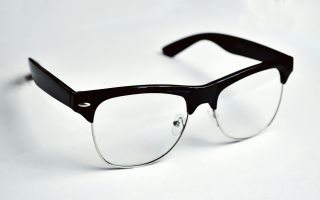The decision to take medications is not an easy one for many individuals, and this seems to be especially difficult when considering the use of psychiatric medications. Although the idea of medications may have been first brought up by a family member, one’s therapist, or a pharmaceutical commercial, individuals naturally have personal agency in the final decision in consultation with a psychiatrist or prescribing provider.
Whether someone is considering taking medications for the first time, going back on medications after a hiatus, or accepting that more permanent use will be needed, several metaphors may be beneficial to consider.

Source: Polina Tankilevitch/Pexels
Determining Necessity: Flu or Diabetes
There are times when medications are optional, but not always. When someone has a bad cold or the flu, a decongestant or throat lozenges might help someone be a little less uncomfortable and allow for better sleeping—but it doesn’t generally change the course of the short-term illness. However, when someone has diabetes or an immunodeficiency, meds are often more mandatory for long-term health and optimal system functioning.
Similarly, with mental health issues, using medications might be optional in some situations yet necessary in others. Not all illnesses are created equally. Decreasing the intensity of depressive symptoms, for instance, might be moderately useful in some circumstances but lifesaving in others. Differentiating optional versus necessary is important, though occasionally this is not known until after a period of use. And even if medicine is determined to be optional, there can sometimes be wisdom in considering usage for a multitude of life-enhancing reasons. Ongoing, open discussions with one’s prescribing provider assist in making such a decision.

Source: Birgit/Pixabay
Considering Duration: Crutches and Good Footwear
Certain symptoms can be so overwhelming that life can be difficult to manage without the symptoms being decreased. Just as crutches can help minimize weight bearing while a sprained ankle is healing, medications can help to decrease the intensity of depressive apathy or turn down the volume on anxious spiraling. And as with the use of crutches for a sprained ankle, some mental health situations might be more temporary in nature.
Other circumstances require more permanent use of medications, and this might be thought of as putting on proper boots for a hike. We could walk barefoot, but the terrain is much more manageable if we have the proper equipment. Life goes more smoothly, there are fewer injuries, and progress is much more expedient. We don’t consider it cheating to use shoes, so why would it be wrong to use medications if warranted? If someone’s significant ADHD symptoms, for instance, interfere with work, relationships, and daily activities, using medications that can diminish impulsivity or improve concentration assists in making life more manageable. If someone’s bipolar disorder symptoms interfere with consistency in self-care, daily routines, and effectiveness in functioning, utilizing prescribed medication regularly helps to level the playing field.
Individuals who don’t have to manage neurodiversity or an illness may not have to think about putting on good footwear because it’s automatically built in for them, but those who don’t have this type of protection deserve solid support. It is not their fault if they weren’t born with the necessary “shoes,” but they do have options to find and wear the proper fitting footwear for their life needs.

Source: Stephen Niemeier/Pexels
Addressing Dependency Worries: Wearing Glasses
One of the concerns that some individuals have about medications can relate to concerns about addiction and dependency. Sharing this concern with the prescribing provider is important, but the difference usually comes down to whether something is helping more than it is hurting. Wearing glasses to correct vision issues wouldn’t be considered an addiction, even though an individual may depend on those lenses to drive or to read. The glasses assist the individual in having visual opportunities more in line with someone who has excellent visual acuity.
In contrast, someone who is attempting to self-medicate by turning to substances in times of distress or upset as a means of numbing out or avoiding the use of other positive coping skills is likely to find that this behavior leads to many negative consequences over the long term. The anesthetizing by-product of a substance may feel positive at first, but the need for increasingly higher doses leads to more dangerous situations and often negatively impacts many life domains. The latter situation is hurting more than helping.

Source: Mieke Campbell/Unsplash
Utilizing Pills and Skills: A Swim Vest
Using a swim vest doesn’t take the place of learning swim strokes, but it can help someone get accustomed to the water and help them prepare for the process of learning to swim. Similarly, even if meds are being used, there is still the need to add in skills, behavioral changes, and shifted mindsets. Medications alone cannot modify all that might be needed for improved functioning and higher quality of life, but they can be the start. Someone on meds is not magically able to get work completed by the deadline, initiate that feared social outing, or suddenly emerge from isolation, but the positive physiological shifts sometimes allow an individual to take that next best step.
Psychiatry Essential Reads
Pills are not a substitute for skills, but proper medications can allow someone to build as well as more routinely utilize new proficiencies. Sometimes those new skills allow an individual to eventually go off of a medication, other times these skills allow a person to be much more highly functioning while remaining on the medications.

Source: David Harper/Pixabay
Continuing Reassessment: Construction Complexity
When a building is undergoing construction, there are often complex layers of scaffolding and multiple considerations involved. Inspections and plan analyses are happening continuously. Sometimes the architectural plan has to be modified, a door moved, or a header added. Similarly, one’s prescriber fine-tuning medication types and dosages is normative at various stages along the recovery journey. And, also similar to construction projects, it often takes longer than we might originally have imagined, but patiently pursuing the right outcome is always worth it.

